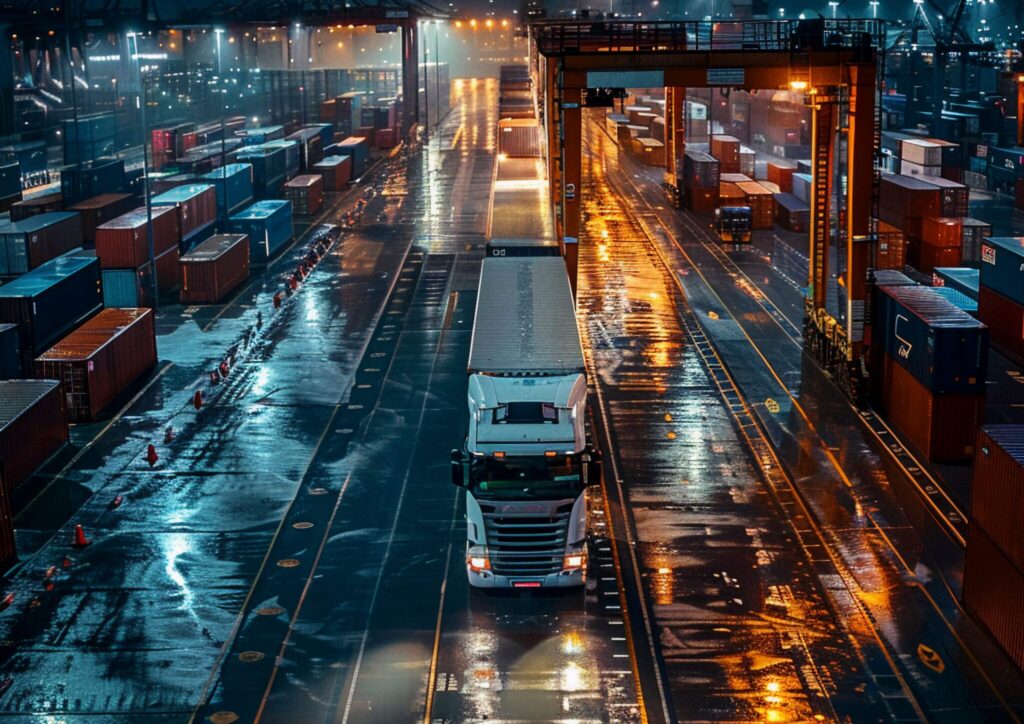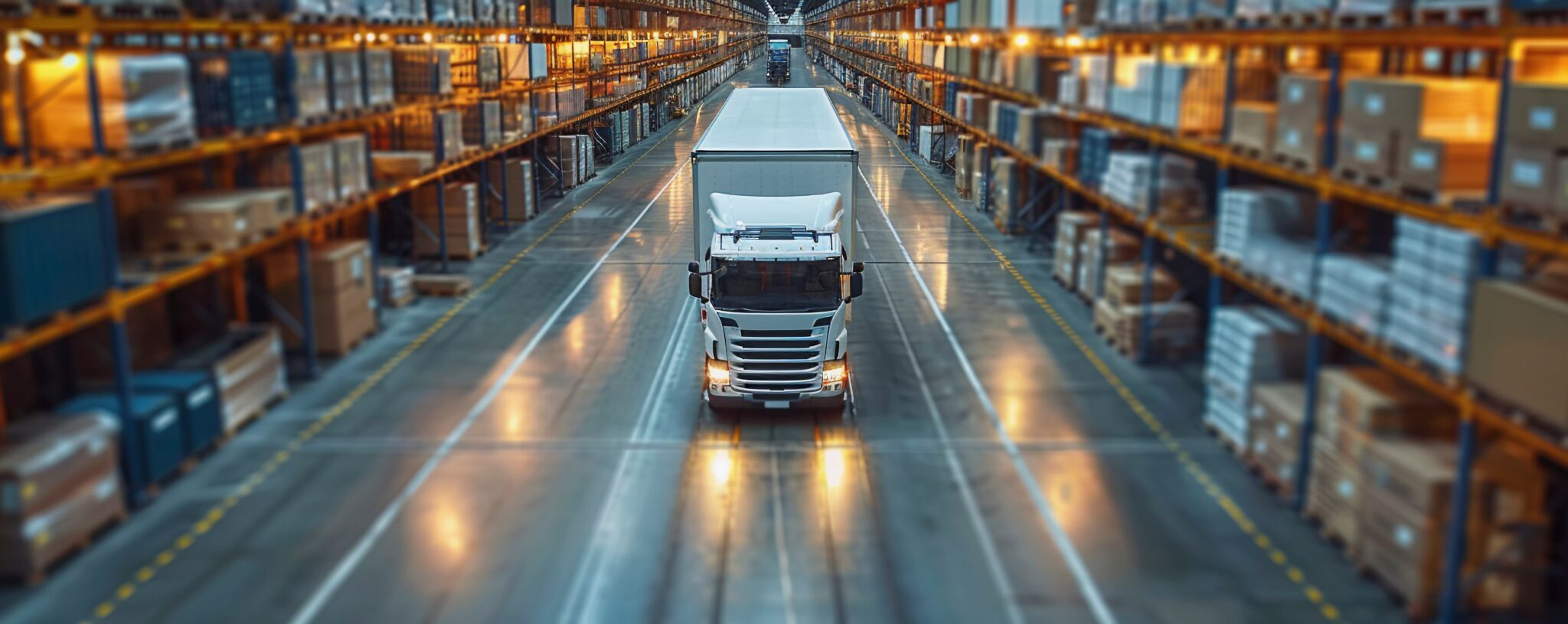AI in Transportation: the Future of Smart Logistics
2nd August 2024

Logistics is the backbone of global commerce, transporting all kinds of goods from manufacturers to consumers all over the world. With the explosion of e-commerce and changing expectations of consumers, there has never been more pressure or greater demand on the supply chain. To function in an increasingly complex world, logistics and transportation need more intelligent and more agile systems, say Oz Moving & Storage.
Artificial intelligence (AI) is revolutionizing each link in the supply chain, creating transportation solutions that are more efficient, more sustainable, and safer than ever. AI is fundamentally changing the landscape of transportation through automation, predictive analytics, and enhanced decision-making processes. Autonomous vehicles, powered by AI, are becoming increasingly common, promising to reduce human error and increase safety and efficiency.
AI can respond to changing conditions, automate tasks, make data-backed decisions, and predict the future, allowing teams to be proactive rather than reactive. By leveraging vast amounts of data, machine learning algorithms can detect patterns and make predictions with far greater accuracy than humans can alone. AI-powered fleet management systems can analyze data from sensors, cameras, databases, and GPS systems in real time to monitor driver behavior, offer recommendations, and detect potential hazards. What’s more, because machine learning is constantly taking in new information, it can adapt and improve over time. This is important, because the world we live in is constantly changing, and we need systems that can keep up.
Making Logistics Smarter with AI
There are some key ways AI can make logistics and transportation smarter:
Route optimization – Route optimization involves using AI algorithms to find the most efficient paths for vehicles to travel from one point to another, considering numerous variables such as traffic conditions, weather, road closures, and delivery windows. AI leverages historical data and real-time inputs to dynamically adjust routes, ensuring the fastest, safest, and most fuel-efficient journeys. This not only reduces delivery times and operational costs but also minimizes environmental impact by lowering emissions. In complex logistics operations, where multiple deliveries are made on a single trip, AI can sequence stops in an optimal order, further enhancing efficiency.
Predictive analytics – AI-driven predictive maintenance systems forecast potential vehicle breakdowns before they occur, minimizing downtime. Predictive analytics in transportation uses AI and machine learning to forecast future trends and events based on historical and real-time data. This can include predicting vehicle maintenance needs, optimizing inventory levels, forecasting demand for public transportation, and anticipating traffic patterns. By accurately predicting these aspects, companies can proactively manage their resources, reducing downtime and costs. For example, predictive maintenance can alert operators to the need for vehicle repairs before a breakdown occurs, significantly reducing unexpected delays and extending the lifespan of the trucks.
Self-driving trucks – Autonomous trucks are set to revolutionize the freight industry by offering safer, more efficient, and cost-effective solutions. Powered by AI, these self-driving trucks can operate without human intervention, navigating roads and obstacles using sensors, cameras, and complex algorithms. They’re designed to operate in various conditions, making long-haul freight transport safer by reducing accidents caused by driver fatigue. Autonomous trucks can also operate 24/7, increasing productivity. The integration of platooning technology, where trucks drive closely together at consistent speeds, further optimizes fuel efficiency and reduces emissions.
Data-driven decision-making – Data-driven decision-making in transportation leverages big data analytics to inform and optimize decisions across the supply chain. AI algorithms analyze vast amounts of data from diverse sources — including vehicle telematics, traffic reports, weather information, and more — to provide insights that human operators might not discern. Managed transportation services, by integrating AI, enhance overall supply chain efficiency through strategic planning and optimized route execution, complementing the data-driven decision-making process. For instance, logistics companies can use data analytics to understand patterns in demand, adjust their operations accordingly, and thus improve asset utilization and customer satisfaction.
Going Green: AI’s Role in Sustainable Transport
AI-powered logistics can help your fleet reach its sustainability goals. Route optimization doesn’t just make your operations faster and less expensive; it can also reduce wasted resources and increase fuel efficiency. This optimization minimizes unnecessary travel, reduces fuel consumption, and lowers greenhouse gas emissions. For fleets that include electric vehicles, AI can also optimize routes based on the availability of charging stations, ensuring that vehicles are charged in the most energy-efficient manner.

AI can predict demand and optimize load consolidation, ensuring that vehicles are fully utilized and reducing the number of trips needed to transport goods. This not only cuts down on fuel usage and emissions but also decreases wear and tear on vehicles, extending their lifespan and reducing the need for new vehicles and parts manufacturing.
Challenges and Opportunities in Smart Logistics
Despite its potential, the integration of AI into transportation faces several challenges. Privacy and security concerns, particularly related to data collection and processing, are paramount.
The demand for secure, AI-driven logistics solutions is spurring innovation in cybersecurity and data protection. In order to implement AI-driven solutions, transportation companies may need to update outdated technologies and invest in replacements for legacy systems. This transition can come with some upfront costs and a learning curve. AI and automation are poised to transform the jobs that transportation and logistics workers perform. As technology gets smarter, employees in this industry will need to learn new skills as their roles adapt to the changing landscape.
The Future: AI Solutions in Transportation
Looking forward, the role of AI in transportation is set to deepen, with emerging technologies offering even more sophisticated solutions. The development of AI-powered infrastructure, such as smart roads and IoT-enabled ports, will further enhance efficiency and safety. Additionally, as AI technologies mature, their integration with other cutting-edge technologies like blockchain and 5G is expected to unlock new possibilities for smart logistics.
AI works in the transportation and logistics sector by analyzing vast datasets to understand patterns, making predictive analyses, optimizing operations through intelligent algorithms, enabling autonomous decision-making, and continuously learning to improve system efficiency and reliability. The combination of these capabilities allows AI to address complex challenges in the industry.
Similar News

